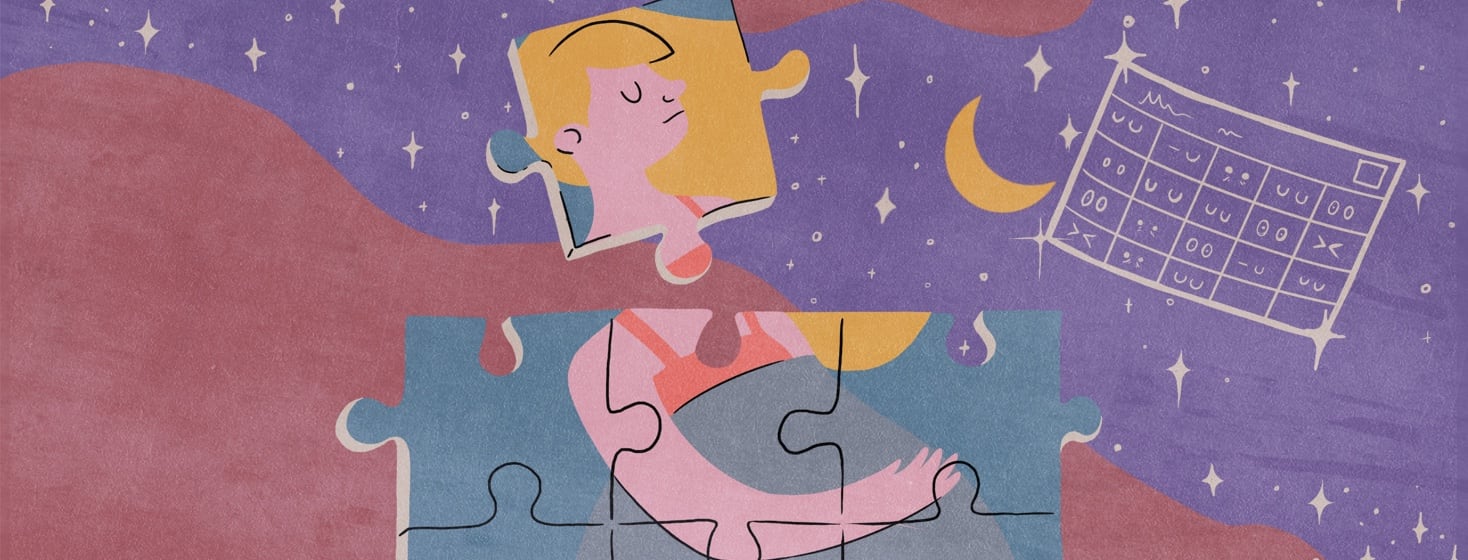How I Transitioned to Integrative Care for Migraine: Part 2
Hopefully, you've had an opportunity to check out the first installment of this integrative series. If not, you can get caught up in Part 1 of this article.
Again, there wasn't an existing playbook to create an integrative plan to manage migraine but I knew diet and lifestyle were contributing factors that were in my control so that's where I began. Now, let's continue on with details on these steps.
Sleep tracking for migraine
Next up was tracking my sleep. Who knew that sleep could actually trigger a migraine?
Turns out while sleep may be a good remedy for when you get a migraine, it also could be the very thing that's causing a migraine if I wasn't careful.
How do you "be careful" with sleep?
As with many things in life, consistency is key. The more consistent my sleep hours were, the less likely I was to get a migraine. Unfortunately, that meant that I couldn't stay up much later than normal on the weekends, nor could I sleep in much. But just like my mindset with the food changes, it was better to be waking up early on the weekends and be migraine-free than to sleep in until 10 am and deal with a migraine the rest of the weekend.
Regular exercise for migraine
Last but not least, I had to create a healthy and consistent exercise routine. Healthy in the sense that it wasn't too intense (kickboxing created a lot of unnecessary tension in my neck and shoulders so that got nixed pretty quickly) but also enough to get my blood pumping.
A rotation of yoga, Pilates, and circuit training turned out to be a good plan for me.
Pushing myself to work out
I'll admit, I had to work out some days that I didn't feel up for it. But to get out of that slump on constant migraines, I had to push myself a bit and within a short period of time, I found the workout to improve how I felt in my body.
When it all came together
Each of these areas dramatically reduced my chance of getting a migraine, and together, they felt like a secret weapon that, over time, reduced my dependency on the medication.
Reducing the use of migraine medication
Once I had a several-month stretch of fewer migraines and less debilitating ones, I had the conversation with my doctor about gradually reducing my daily medication. We started with one and as long as I was consistent with my diet and lifestyle plan, I was doing well. Then after being stable for several months, we slowly reduced my dosage of the second daily medication.
I always kept my rescue medicine handy and was quick to take it as soon as I felt one coming on. I found the sooner I took it, the less overall medicine I would need to take in the long run.
This is a plan that worked for me.
Integrative migraine management
It's different for each person, but the advice I give to people who don't want to be on so many medications is just what I shared in this article - keep your medicine as-is for now, implement a consistent diet and lifestyle plan, as your migraines decrease and stabilize work with your doctor for guidance on how to safely transition off any medication you may no longer need.
Bottom line: Don't go cold turkey, and don't do it without the guidance of your doctor. It requires you to have a little skin in the game, but it's worth it in the long run when you can be free from debilitating migraines and from a rainbow of medication.

Join the conversation